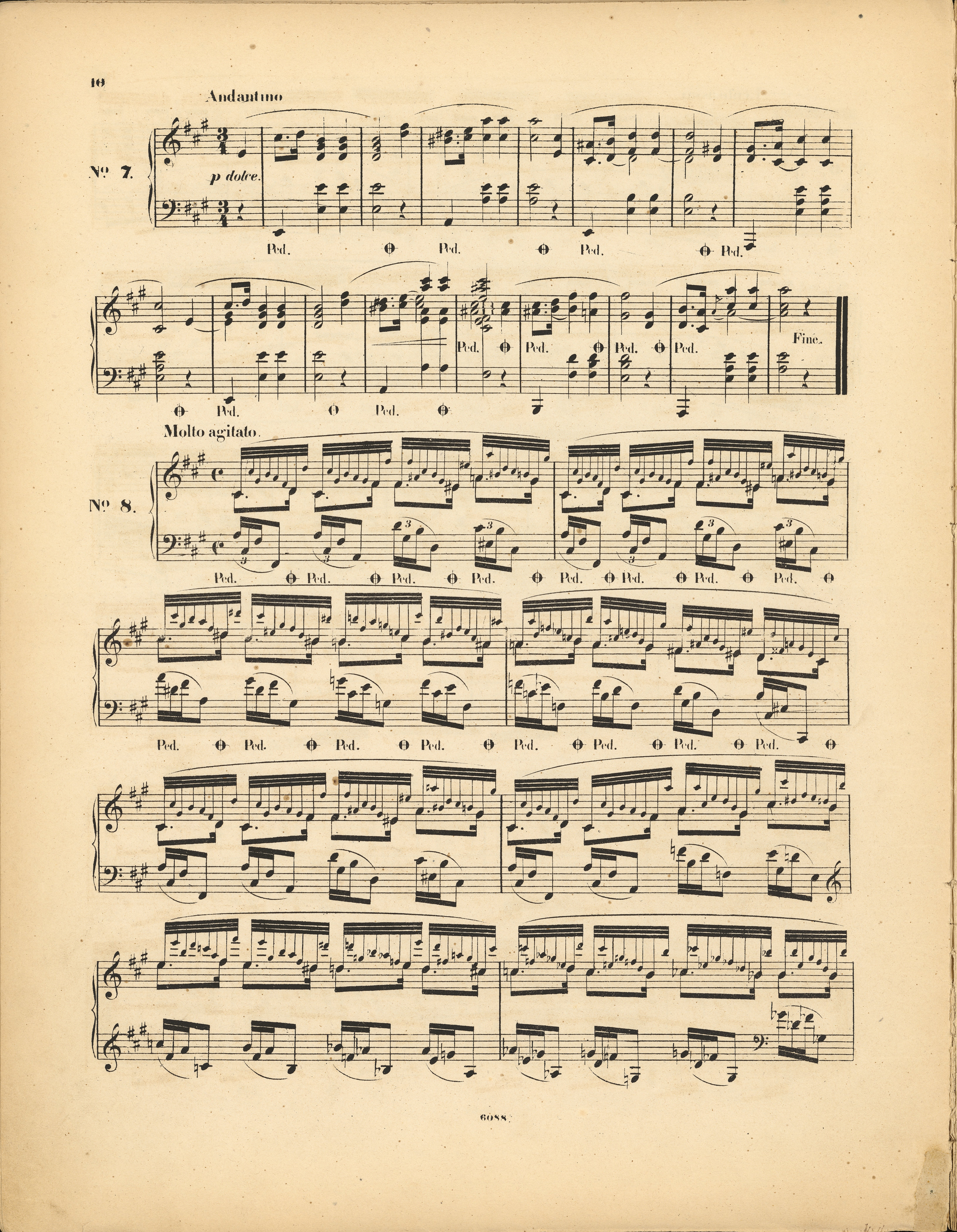Op. 2, Variations in B♭ major
Op. 10, 12 Etudes
Op. 11, Concerto in E minor
Op. 21, Concerto in F minor
Op. 22, Polonaise in E♭ major
Op. 24, 4 Mazurkas
Op. 25, 12 Etudes
Op. 26, 2 Polonaises
Op. 27, 2 Nocturnes
Op. 28, 24 Preludes
Op. 30, 4 Mazurkas
Op. 35, Sonata in B♭ minor
Op. 50, 3 Mazurkas
Op. 63, 3 Mazurkas
Op. 64, 3 Waltzes
(Op. 4), Sonata in C minor




Op. 28 No. 8, Prelude in F♯ minor
As was the case in b. 3-4, in A Chopin generally omits accidentals next to the bass quavers if the accidentals have been written an octave higher next to one of the preceding semiquavers. In the discussed bars it concerns f in b. 6, c1 and b in b. 7, g and g
in b. 7, g and g in b. 8, f in b. 9 and 11, B
in b. 8, f in b. 9 and 11, B and G in b. 11, B
and G in b. 11, B in b. 12 and G
in b. 12 and G in b. 13. That notation was literally repeated in FE; in FC almost without changes (only one
in b. 13. That notation was literally repeated in FE; in FC almost without changes (only one  added next to B
added next to B in b. 11). The remaining editions added the majority of the necessary accidentals – in EE1 all except for the
in b. 11). The remaining editions added the majority of the necessary accidentals – in EE1 all except for the  next to G
next to G in b. 13, while in GE1 all except for the naturals next to f in b. 6 and G in b. 11 (in GE2 the former was added). It is only EE2 that includes a fully correct notation.
in b. 13, while in GE1 all except for the naturals next to f in b. 6 and G in b. 11 (in GE2 the former was added). It is only EE2 that includes a fully correct notation.
Compare the passage in the sources »
category imprint: Interpretations within context; Differences between sources
issues: EE revisions, Accidentals in different octaves, GE revisions, Fontana's revisions, Inaccuracies in A, Errors repeated in GE, Errors repeated in FE, Errors repeated in EE
notation: Pitch

